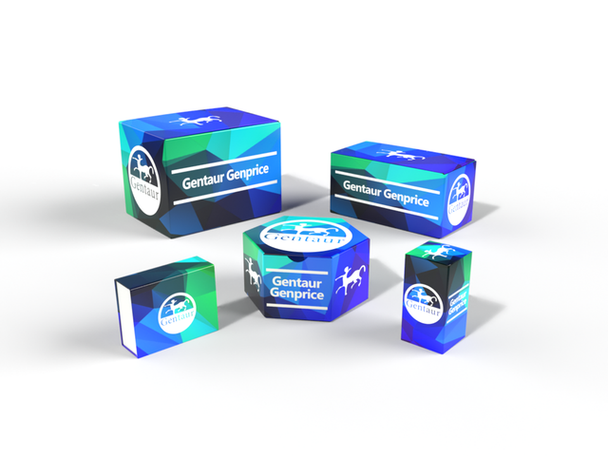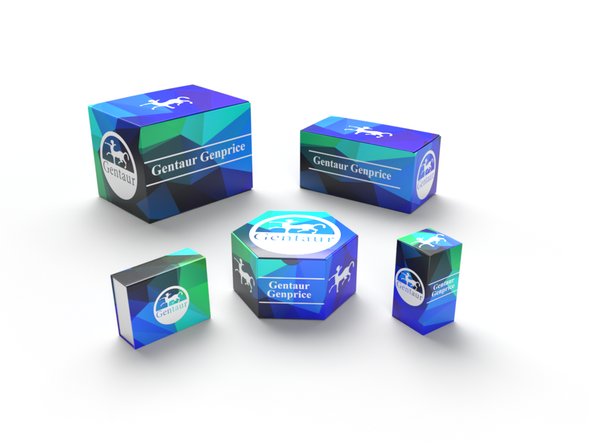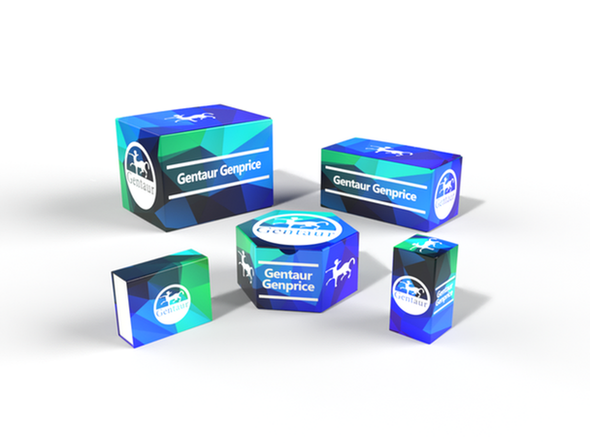740
Human Tumor susceptibility gene 101 protein (TSG101) ELISA Kit | AE13155HU
- SKU:
- 740-AE13155HU
- Availability:
- Usually ships in 5 working days
Description
Human Tumor susceptibility gene 101 protein (TSG101) ELISA Kit | AE13155HU | Gentaur UK, US & Europe Distribution
Species Reactivity: Human (Homo sapiens)
Abbreviation: TSG101
Alternative Name: TSG10; VPS23; tumor susceptibility protein
Application: ELISA
Range: 0.312-20 ng/mL
Sensitivity: 0.114 ng/mL
Intra-Assay: ≤4.6%
Inter-Assay: ≤8.6%
Recovery: 0, 95
Sample Type: Serum, Plasma, Other biological fluids
Detection Method: Sandwich
Analysis Method : Quantitive
Test Principale: This assay employs a two-site sandwich ELISA to quantitate TSG101 in samples. An antibody specific for TSG101 has been pre-coated onto a microplate. Standards and samples are pipetted into the wells and anyTSG101 present is bound by the immobilized antibody. After removing any unbound substances, a biotin-conjugated antibody specific for TSG101 is added to the wells. After washing, Streptavidin conjugated Horseradish Peroxidase (HRP) is added to the wells. Following a wash to remove any unbound avidin-enzyme reagent, a substrate solution is added to the wells and color develops in proportion to the amount of TSG101 bound in the initial step. The color development is stopped and the intensity of the color is measured.
Product Overview: Tumor susceptibility gene 101, also known as TSG101, is a protein belongs to a group of apparently inactive homologs of ubiquitin-conjugating enzymes. The gene product contains a coiled-coil domain that interacts with stathmin, a cytosolic phosphoprotein implicated in tumorigenesis. The protein may play a role in cell growth and differentiation and act as a negative growth regulator. In vitro steady-state expression of this tumor susceptibility gene appears to be important for maintenance of genomic stability and cell cycle regulation. Mutations and alternative splicing in this gene occur in high frequency in breast cancer and suggest that defects occur during breast cancer tumorigenesis and/or progression.
Stability: The stability of ELISA kit is determined by the loss rate of activity. The loss rate of this kit is less than 5% within the expiration date under appropriate storage condition. The loss rate was determined by accelerated thermal degradation test. Keep the kit at 37°C for 4 and 7 days, and compare O.D.values of the kit kept at 37°C with that of at recommended temperature. (referring from China Biological Products Standard, which was calculated by the Arrhenius equation. For ELISA kit, 4 days storage at 37°C can be considered as 6 months at 2 - 8°C, which means 7 days at 37°C equaling 12 months at 2 - 8°C) .






